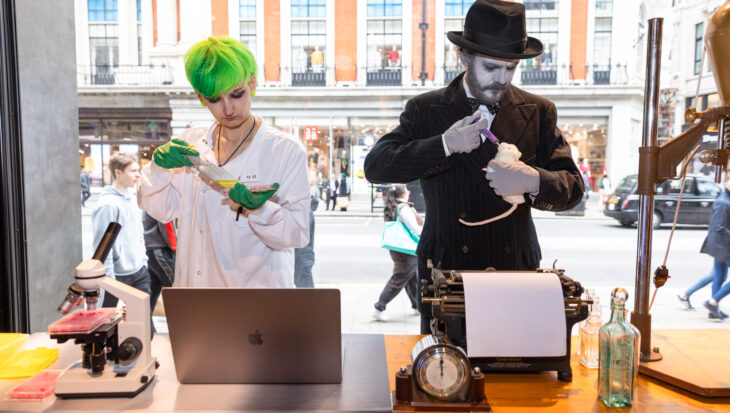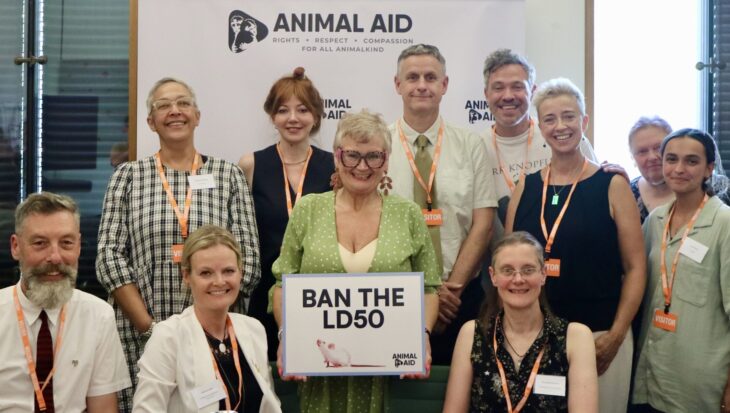The cow, whom they have named Daisy, was born without a tail – a serious malformation, given that cows’ tails are linked to their spinal cords and central nervous systems. A tail is also essential for keeping biting and egg-laying insects at bay.
It is quite likely that Daisy, born after six years of intensive animal experimentation, will have – or will develop – other painful or incapacitating abnormalities.
Out of 100 cloned embryos, Daisy was the only survivor. A high early mortality rate, together with examples of severe abnormalities, is typical of cloning experiments. According to a 2007 study*, the most common abnormalities included depression and prolonged immobility, respiratory problems, hyper/hypothermia, and a potentially crippling condition called contracted flexor tendons. The cows used for reproduction also suffer, via a series of invasive procedures. In cattle, embryo transfer is so stressful it requires an anaesthetic.
The protein that was eliminated from Daisy’s milk is called beta-lactoglobulin (BLG) – an allergen that is not actually present in human milk. But while the scientists at AgResearch based in New Zealand managed to purge her milk of BLG, it contained more than double the concentration of other milk proteins, called caseins. These are also a significant cause of allergies. Symptoms can include swelling of the lips, mouth, tongue, face, or throat; skin reactions such as hives or rash; itchy eyes, coughing, or wheezing; and, most seriously, a potentially life-threatening condition called anaphylaxis.
The answer to milk allergies, of course, is not to inflict more suffering on the already hard-pressed dairy cow but to shop for non-dairy milk products – which are healthy and readily available. Click here for the good news about the vegan diet.
* Panarace, M., Agüero, J. I., Garrote, M., Jauregui, G., Segovia, A., Cané, L., Gutiérrez, J., Marfil, M., Rigali, F., Pugliese, M., Young, S., Lagioia, J., Garnil, C., Pontes, J. E. F., Junio, J. C. E., Mower, S., Medina, M., Thompson, J., Vajta, G., Kochhar, H., Thibier, M. and Imai, H. (2007) How healthy are clones and their progeny: 5 years of field experience. Theriogenology, 67: 142-151.

